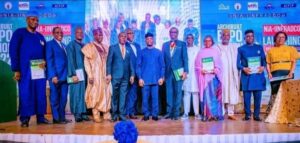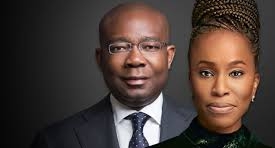The Nigerian Vice President, Professor Yemi Osinbajo has called on Architects and other relevant professionals in the country to consider underprivileged when planning for Nigeria’s infrastructure and building sustainable cities for the future.
Osinbajo made the call at the National Integrated Masterplan Conference organized by the Nigerian Institute of Architects (NIA) in Abuja with the theme ‘Creating Sustainable World-Class Cities in Nigeria.’

Speaking on the need to have an infrastructure plan that takes care of all strata of society, the Vice President said “it is important that professionals keep the underprivileged members of society in mind as you plan the country’s infrastructure.
“In building our cities, we must deliberately ensure that the benefits of becoming world-class cities accrue not only to wealthy individuals but across all strata of society.
“A city cannot be considered world-class if it lacks a vibrant economy driven by qualitative infrastructure, functional social services and efficient urban governance that optimally deliver public goods,” he added.
Osinbajo urged Nigerian Architects to see infrastructure planning as an opportunity to create a physical environment conducive for social mobility.
While making reference to the present administration’s efforts in social housing and other welfare programmes, the VP noted that the investments demonstrate Govt consciousness of the inadequacies that cities across the world face.
“The Federal Government invested significantly in Infrastructure. Over the past seven years, we have ensured that the capital expenditure for infrastructure projects is prioritised in the budget. We have embarked upon new projects as well as overseen the completion of ongoing projects.

“Our investments in rail, highways, fibre optics, digital penetration, energy pipelines, electricity transmission and distribution lines and renewable energy, are not just about meeting today’s demands, they are infrastructural arteries that will link tomorrow’s cities and give them the capacity for sustainable growth”, the Vice President said.
Speaking further on urban planning and social integration, Osinbajo said “sustainable urban planning must involve planning for the clean energy needs of large numbers of people, from renewable energy for homes and work spaces, to providing infrastructure for clean cooking.”
He added that “the case for sustainable cities is obvious. They can invigorate regional economies and catalyze growth on a regional scale. The positive multiplier effects are inestimable and the benefits are not just economic.”
Osinbajo said “new frontiers of opportunity for social engineering with a view to strengthening social cohesion are opened up.
“The opportunity to shape the living spaces of millions of people from diverse backgrounds clustering in new cosmopolitan precincts is an exciting one. It is a task that we must embrace with a good measure of strategic intentionality and imagination.”
Minister of Finance, Budget and National Planning, Zainab Shamsuna Ahmed in her Goodwill message, acknowledged the laudable example Nigerian Institute of Architects (NIA) is taking with Federal Government to build the Nigeria we desire.
She expressed the governments delight at the NIA taking ownership of implementation of national policies for infrastructure development.
She added that the innovative approaches to financing and developing infrastructure projects are as follows, use of tax credits, use of sukuk bonds, deployment of infrastructure funds through the NSIA, the presidential power initiative.
“The $2.3 trillion master plan is set to modernize Nigeria’s infrastructure stock over the next 21 years with approximately 86% financed by the private sector”, she said.
The Honourable Minster thanked the leadership of NIA for providing the platform for sharing governments plan on infrastructure.












